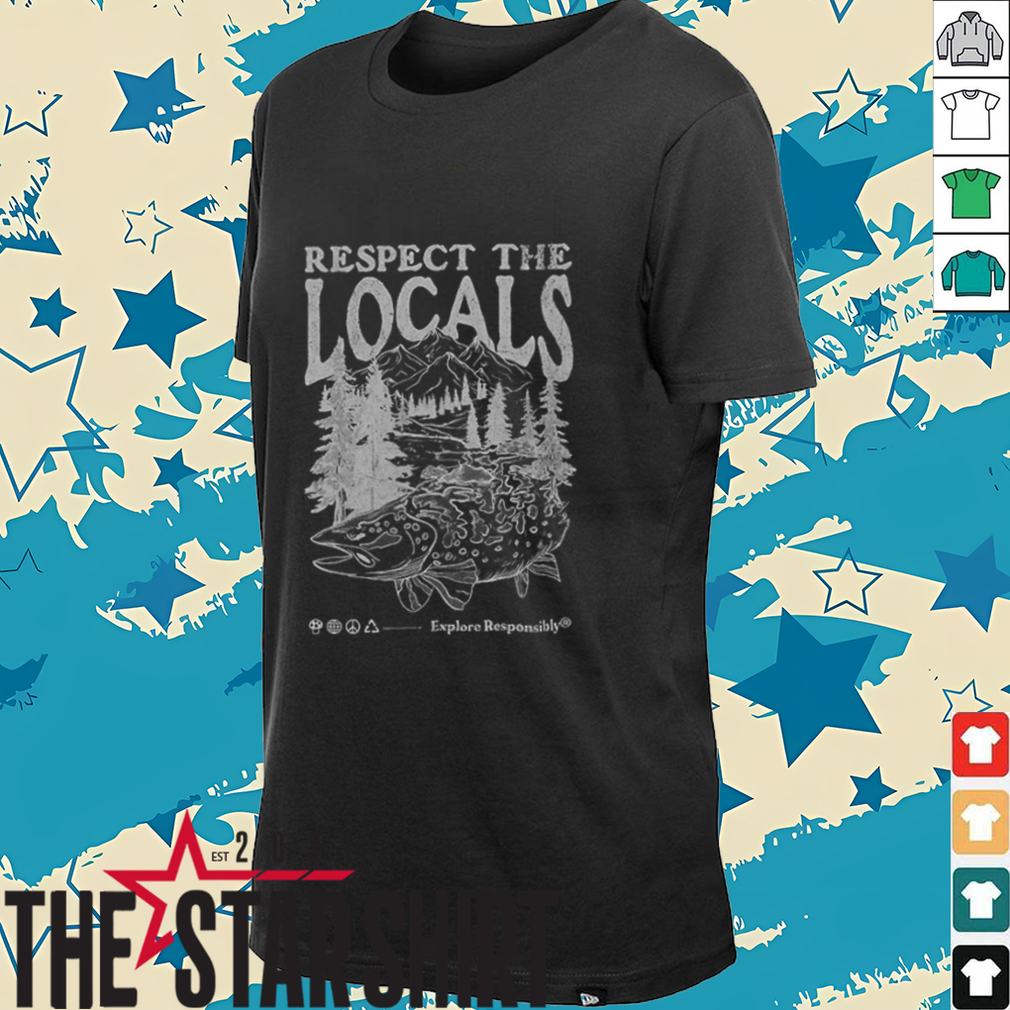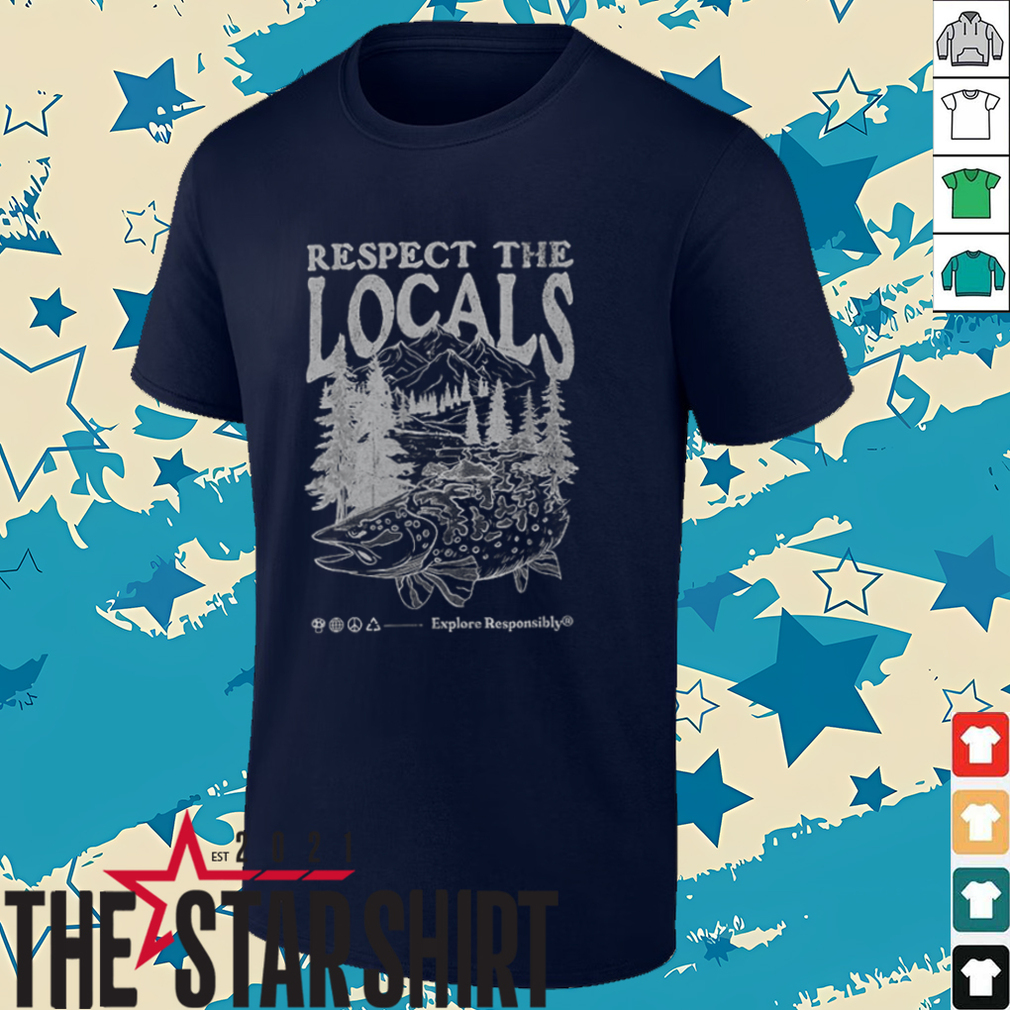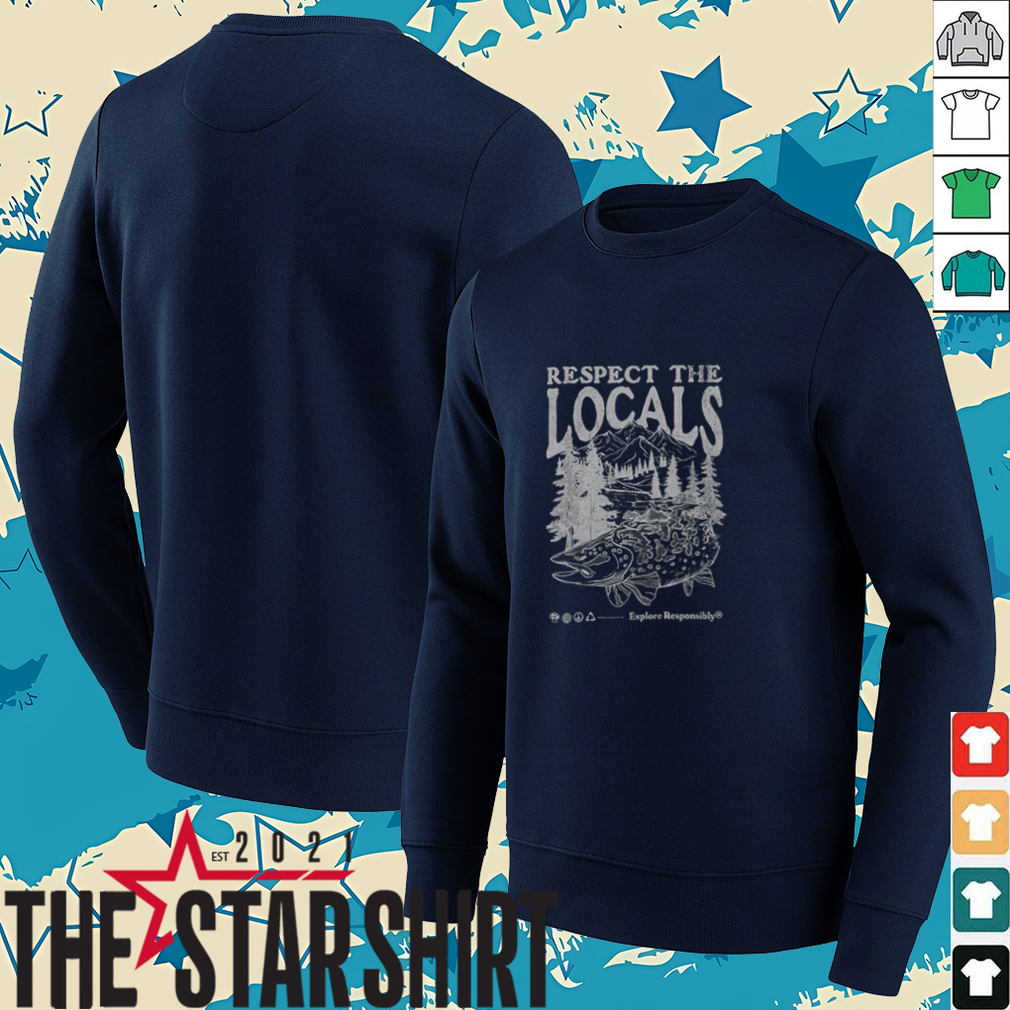“Respect the Locals Ocean Inspired Explore Responsibly Shirt”: A Call for Mindful Coastal Adventure
The “Respect the Locals Ocean Inspired Explore Responsibly shirt” is more than just an item of clothing; it’s a powerful statement promoting ethical tourism and environmental stewardship. This **shirt** encapsulates a crucial message for anyone visiting coastal areas or engaging with marine environments: the importance of showing deference to the communities that call these places home and adopting sustainable practices while exploring the beauty of our **oceans**. It’s a blend of cultural sensitivity and ecological awareness, urging travelers to be conscious of their footprint, both socially and environmentally. The prominent entities are “**Respect the Locals**” (the social directive), “**Ocean Inspired**” (the aesthetic and thematic influence), and “**Explore Responsibly**” (the call to action for sustainable tourism). Semantic keywords include “ethical travel shirt,” “sustainable tourism apparel,” “ocean conservation tee,” “coastal community respect,” “eco-friendly travel gear,” “marine life protection,” “responsible exploration clothing,” “beach clean-up shirt,” and “ocean-themed ethical wear.” The unique attribute of this **shirt** is its dual focus on both human and environmental respect, acting as a viral trigger for those passionate about protecting natural spaces and supporting local cultures. This **T-shirt** is perfect for surfers, divers, beachgoers, eco-tourists, advocates for sustainable living, or anyone who deeply cares about the well-being of our planet and its diverse communities. But what does “respecting the locals” truly entail in a tourism context, what are the key principles of “exploring responsibly” in ocean environments, and how can we ensure our “ocean-inspired” adventures contribute positively to the places we visit?
—
“Respect the Locals”: The Foundation of Ethical Travel
**”Respect the Locals”** is a cornerstone of ethical and sustainable tourism. It goes beyond mere politeness, encompassing a deep understanding and appreciation for the culture, traditions, and daily lives of the people residing in the destinations we visit. This means researching local customs before you go, dressing appropriately, asking permission before taking photographs, supporting local businesses directly (like guesthouses, restaurants, and artisans), and being mindful of noise levels and privacy (Source: Charita Czech Republic, FasterCapital). For coastal communities, this often means understanding their reliance on the ocean for livelihoods, respecting fishing practices, and recognizing their traditional knowledge of marine ecosystems. For instance, in many coastal villages, local wisdom about tides, currents, and marine life has been passed down through generations. Ignoring or disrupting these practices can have profound negative impacts on both the environment and the community. My personal commentary: True travel isn’t just about sightseeing; it’s about connecting with people, and showing respect is the first step in forging those genuine connections. If you like to zoom in this way, you can almost imagine the conversations sparked by this shirt, fostering understanding between visitors and residents.
—
“Explore Responsibly”: Safeguarding Our Ocean Sanctuaries
The imperative to “**Explore Responsibly**” is particularly vital when it comes to our **oceans**. Marine ecosystems are fragile and susceptible to damage from human activity, from coral reef destruction caused by careless divers to plastic pollution impacting marine life. The “Explore Responsibly” message aligns closely with principles of “Leave No Trace,” advocating practices such as staying on designated trails (or in marine terms, designated dive/snorkel paths), disposing of waste properly, respecting wildlife by not feeding or disturbing them, and minimizing overall environmental impact (Source: Leave No Trace, FasterCapital). For **ocean-inspired** activities like snorkeling, diving, or boating, this translates to avoiding contact with coral reefs, using reef-safe sunscreen, not touching marine animals, and ensuring all trash is properly contained and removed. Leading sustainable tourism initiatives, like the recently launched Ocean Tourism Pact by UN Tourism and UNEP, aim to establish a “blue tourism” model that balances economic growth with marine ecosystem regeneration (Source: UNWTO, Sustainable Hospitality Alliance). This commitment to protecting marine habitats is a unique attribute, emphasizing that our adventures should not come at the expense of the environment. For fans of thought-provoking apparel that challenges norms, the “Thou Map Angest A Satchel Of Richards Shirt” offers a unique and witty statement.
—
“Ocean Inspired”: Turning Passion into Protection
The “**Ocean Inspired**” element of the **shirt** speaks to the profound connection many people feel with the sea—its beauty, its mystery, and its vital role in our planet’s health. This inspiration should naturally lead to a desire for protection. The design likely incorporates imagery or colors that evoke the ocean, fostering an emotional bond that encourages responsible behavior. This connection acts as a viral trigger, as people who love the ocean are often eager to express that love and advocate for its preservation. Here’s the part they didn’t tell you: the health of our **oceans** is inextricably linked to the well-being of coastal communities. When marine environments suffer from pollution or over-tourism, local livelihoods—from fishing to tourism—are directly impacted. By wearing this **shirt**, individuals aren’t just making a fashion statement; they are publicly committing to a set of values that prioritize the longevity of our planet’s most vital ecosystem and the prosperity of the communities that depend on it. It’s an emotional risk to confront unsustainable practices, but by promoting mindful travel and respect, this **shirt** helps to build a more harmonious relationship between visitors, locals, and the breathtaking **ocean** itself.
Follow-up Questions:
- What are specific, actionable steps a traveler can take to truly “**Respect the Locals**” in a bustling coastal tourist town?
- How can local communities themselves better communicate expectations to visitors about “**Responsible Exploration**” of their marine environments?
- What are some less obvious negative impacts of unsustainable **ocean tourism** that this **shirt** implicitly warns against?
- If you were to design a follow-up shirt, what other key message related to ethical travel or **ocean conservation** would you highlight?
- What is one surprising cultural norm in a coastal community that visitors often overlook but is crucial to “**Respect the Locals**”?






























